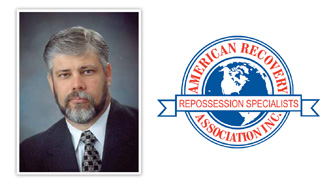ARA Examines New Fuel Surcharge Approach

By subscribing, you agree to receive communications from Auto Remarketing and our partners in accordance with our Privacy Policy. We may share your information with select partners and sponsors who may contact you about their products and services. You may unsubscribe at any time.
IRVING, Texas –
As fuel costs climb, American Recovery Association leaders concede repossession agencies are “being dragged to the alligator pits under the weight of the recent fuel price increases.”
As a result, ARA insisted it has been researching various fuel surcharge formulas since February that could be applied to the association’s business model.
“Although it may not be perfect, we have found one based on numbers that clearly demonstrate the added burden that recovery agents nationwide are currently enduring,” ARA executive director Les McCook explained.
After polling a cross-section of its membership in different sized and populated areas, ARA discovered approximately 13 percent of a company’s monthly expenses go toward fuel.
“We know this will vary but this calculator will allow you to determine a fair surcharge rate for your area,” McCook stressed.
“It allows the flexibility to use regional cost differences in the equation and it is one that everyone in the industry can use. It also has an important facet we heard about from the stage at North American Repossessors Summit — it needs to be able to reverse the surcharge as fuel prices begin to retreat,” McCook continued.
Subscribe to Auto Remarketing to stay informed and stay ahead.
By subscribing, you agree to receive communications from Auto Remarketing and our partners in accordance with our Privacy Policy. We may share your information with select partners and sponsors who may contact you about their products and services. You may unsubscribe at any time.
ARA pointed out a major challenge in identifying a single solution is the various business practices within the industry and the type of area each of repo agency serves. The association attempted to consider that some agents are in a more rural setting where there may be many miles between assignment addresses while some larger city-based companies can cover several accounts in a small radius.
“We hear of clients that use a ‘as the crow flies’ mileage structure that is totally unworkable and adds to the difficulty in providing a solution to this serious issue,” McCook mentioned.
That explanation prompted McCook to ask, “Can you imagine working in the Appalachians and trying to work accounts “as the crow flies”?
He responded by sharing, “The last time I was in the Appalachians there were very few roads over the top of the mountains. A crow may be able to fly 20 miles to a given address, but he will struggle to haul a 3,000-pound automobile back over the mountain. When he finally decides he needs a truck to help him, he now has to wait while the driver drives one hour/40 ground miles to get there and then one hour/40 miles back — traveling 80 miles and getting paid for 40 miles.”
ARA emphasized that it wants repossession clients to be part of the solution, too, not create untenable positions that add to the burden business owners are bearing.
“We have circulated this fuel surcharge calculator to many of the lenders. A few were quick to respond and say they appreciated the effort and would approve a separately billed fuel surcharge,” ARA leaders learned.
McCook offered how this formula could be beneficial going forward.
“I believe the first major lender to implement a fuel surcharge that allows the agent to get back to where they were will be seen as a hero and garner a great deal of loyalty from their agents,” he declared. “I even predict the lender will see an immediate increase in recovery rates.
“Again, we are not claiming this is the definitive solution but it is the best we have seen presented,” McCook went on to say. “We are working to elevate this conversation to the level of importance that it deserves.”
ARA is looking for more feedback about this issue. The association can be reached at (972) 755-4755 or [email protected].


